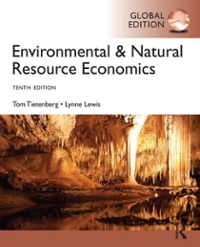Question
2. The policy tracker page in the IMF website2 summarizes the key discretionary fiscal and monetary policies that governments are taking to tackle the economic
2. The policy tracker page in the IMF website2 summarizes the key discretionary fiscal and monetary policies that governments are taking to tackle the economic impacts of the COVID-19 pandemic. Consider the following examples.
(a) The People's Bank of China (PBOC), China's central bank, has lowered its required reserve ratio for commercial banks by 50 - 100 basis points (one basis point = 0.01%). Explain, with an aid of the money demand and money supply diagram, how this policy would affect the money market. (6%)
(b) In U.S., an estimated of US$2.3 trillion (around 11% of GDP) of Coronavirus Aid, Relief and Economy Security Act ("CARES Act") was passed. It includes tax rebates to individuals, expanding unemployment benefits, and so on. Explain, with an aid of the diagram of AE line, the impact of this policy on U.S. output using the Keynesian model. (6%)
(c) Discuss how the policies in questions 2(a) and 2(b) help tackle the economic impacts of the COVID-19 pandemic using the AD-AS diagram. (8%)
(d) Many central banks have adopted unconventional policies to stimulate their economies. One of such policies is the adoption of negative interest rates. While Bank of England (central bank of UK) said it would need at least six months to prepare for such move3 , the European Central Bank, the Bank of Japan and other central banks have already adopted the negative interest rates. Discuss what is the negative interest rate policy and how it would affect the money market and the economy in the short run. (10%)
Step by Step Solution
There are 3 Steps involved in it
Step: 1

Get Instant Access to Expert-Tailored Solutions
See step-by-step solutions with expert insights and AI powered tools for academic success
Step: 2

Step: 3

Ace Your Homework with AI
Get the answers you need in no time with our AI-driven, step-by-step assistance
Get Started


